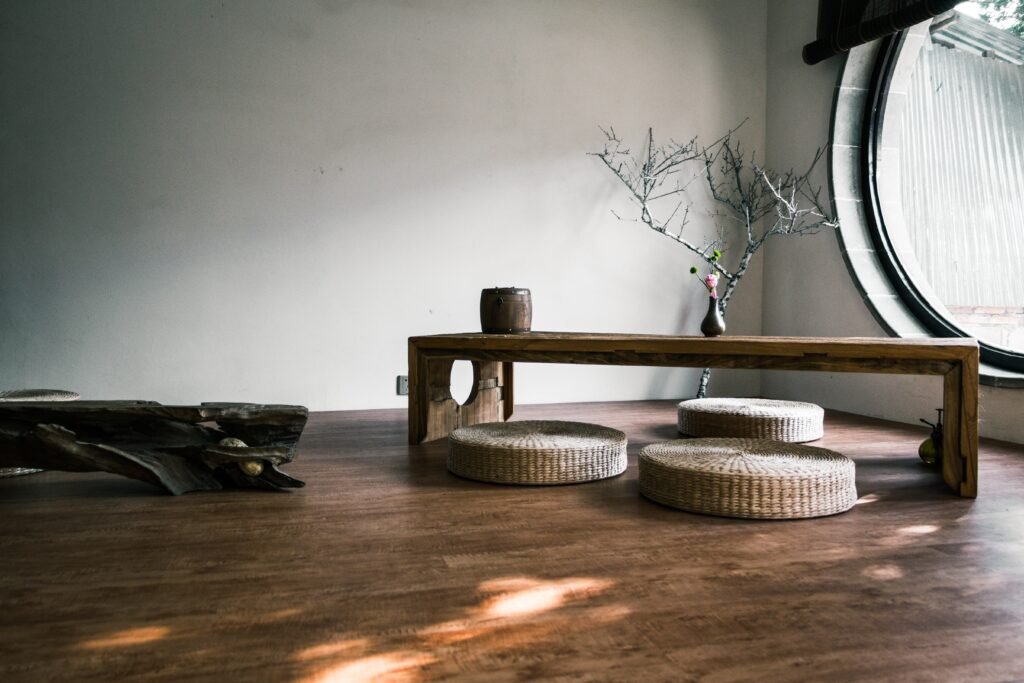So you’re considering investing in a property, but you’re not quite sure where to start? Well, have you ever thought about the world of fixer-uppers? These seemingly unpretentious properties can actually hold a plethora of hidden benefits. From the potential for higher returns on investment to the opportunity to unleash your creative side, there truly is something special about taking on a fixer-upper project. In this article, we’ll explore the various advantages of investing in a fixer-upper and why it could be the perfect opportunity for you to make your mark in the property market.

Understanding the Concept of a Fixer-Upper
Definition of a fixer-upper
A fixer-upper refers to a property that requires significant repairs, renovations, or remodeling in order to make it habitable or improve its overall condition. These properties are typically sold at a lower price compared to move-in ready homes, as they require additional investments of time, money, and effort to bring them up to a desirable standard.
Differentiating a fixer-upper from other property types
It’s important to distinguish fixer-uppers from other property types such as new construction or move-in ready homes. While new construction properties are built from scratch, and move-in ready homes require little to no renovations, fixer-uppers offer a unique opportunity for investors and homeowners to add value and personalize their investment. With fixer-uppers, you have the chance to create your dream home or generate a substantial profit through renovation.
Potential for High Returns
How fixer-uppers can lead to significant profits
Investing in a fixer-upper offers considerable potential for high returns. By purchasing a property at a lower price due to its current condition and investing in renovations, you have the opportunity to increase its market value. This means that when you decide to sell or rent out the property in the future, you can potentially make a substantial profit. Additionally, the real estate market tends to appreciate over time, which allows you to benefit from both the increase in property value and the renovations you’ve made.
Examples of successful fixer-upper investments
Numerous success stories can be found where investors or homeowners have significantly increased the value of a fixer-upper property. For instance, by updating the kitchen and bathrooms, replacing worn-out flooring, and enhancing the curb appeal through landscaping, individuals have been able to transform neglected properties into desirable homes. These success stories highlight the potential of fixer-uppers to yield profitable returns, making them an attractive investment option.

Affordability of Fixer-Uppers
Comparative cost analysis of fixer-uppers and ready-to-move-in houses
One of the main advantages of fixer-uppers is their affordability compared to ready-to-move-in houses. When purchasing a fixer-upper, you have the opportunity to negotiate a lower purchase price, taking into consideration the cost of necessary renovations. This allows you to potentially acquire a property in a desirable location at a lower price point compared to homes that are move-in ready.
Understanding the initial low cost of purchase
The initial low cost of purchasing a fixer-upper can be a great advantage for investors and homeowners. By acquiring a property at a lower price, you have the flexibility to allocate more of your budget towards renovations, improving the overall condition and value of the property. This can be a cost-effective strategy, as it allows you to maximize your investment and potentially increase your profit margin when it comes time to sell or rent out the property.
Enhancing Real Estate Knowledge and Skills
Learning the property market through hands-on experience
Investing in a fixer-upper provides a unique opportunity to gain valuable knowledge and experience in the property market. By actively participating in the renovation process, you’ll become familiar with various aspects of real estate, such as property valuation, market trends, and construction processes. This firsthand experience can be invaluable, as it allows you to acquire a deeper understanding of the industry and make more informed investment decisions in the future.
Skills acquisition in home renovation and management
Taking on a fixer-upper project gives you the chance to develop and enhance your skills in home renovation and management. From coordinating contractors and overseeing renovations to making design decisions and managing timelines, the process of renovating a fixer-upper can be a transformative learning experience. These newfound skills can not only save you money on future home improvement projects but also open up opportunities for potential career paths in real estate or property development.

The Role of Creativity in Fixer-Uppers
Opportunity for personalized designs and concepts
One of the exciting aspects of investing in a fixer-upper is the opportunity to bring your creative vision to life. Unlike move-in ready homes, which often come with predetermined designs and finishes, fixer-uppers allow you to personalize every detail according to your tastes and preferences. From choosing paint colors and materials to designing the layout and implementing unique features, your creativity can truly shine through and make the property a reflection of your personal style.
How creativity can increase property value
Creativity plays a vital role in increasing the value of a fixer-upper property. By incorporating design elements that are both aesthetically pleasing and functional, you can greatly enhance the overall appeal and desirability of the property. This, in turn, can significantly impact its market value, potentially yielding higher profits when it comes time to sell or rent out the renovated property. Creative solutions, such as maximizing space or adding unique architectural features, can truly set a fixer-upper apart from standard properties on the market.
Financing options for Fixer-Uppers
Accessing loans for fixer-uppers
When it comes to financing a fixer-upper, various options are available to investors and homeowners. Traditional mortgage loans can be obtained from financial institutions, specifically designed for the purchase and renovation of properties. Additionally, specialized renovation loans, such as the FHA 203(k) loan, are specifically tailored for fixer-uppers. It’s important to explore all available financing options and consult with a financial advisor to determine the best course of action for your individual circumstances.
Government schemes supporting fixer-upper investments
In many countries, government schemes and incentives are in place to support fixer-upper investments. These initiatives help make it more affordable to purchase and renovate properties, encouraging individuals to undertake projects that improve neighborhoods and contribute to local communities. Examples of such schemes include tax credits, grants, and subsidized loans. Be sure to research and inquire about any government programs in your area that may provide financial assistance or incentives for investing in a fixer-upper.
Tax Advantages of Investing in a Fixer-Upper
Overview of potential tax benefits
Investing in a fixer-upper can offer various tax advantages, depending on the specific laws and regulations in your jurisdiction. For instance, expenses related to renovations, repairs, and improvements may be tax-deductible. Additionally, depreciation allowances may be available, allowing you to deduct a portion of the property’s value over its useful life. It’s crucial to consult with a tax professional or accountant to understand the specific tax benefits and provisions applicable in your situation.
Legal provisions for tax deductions in fixer-upper investments
The legal provisions for tax deductions in fixer-upper investments vary by country and can be subject to specific conditions and limitations. In some cases, only certain types of repairs or improvements may be eligible for tax deductions. It is crucial to familiarize yourself with the applicable tax regulations and consult with a tax advisor to ensure compliance and maximize your tax benefits when investing in a fixer-upper.
Potential rental income from a Fixer-Upper
Renting out renovated fixer-uppers
Once a fixer-upper has been successfully renovated, it can serve as a lucrative source of rental income. Depending on the location, size, and quality of the property, you can attract tenants who are willing to pay a premium for a well-maintained and updated living space. By conducting thorough market research and setting competitive rental rates, you can maximize the return on your investment and generate a steady stream of passive income.
Comparative analysis of rental income from fixer-uppers and standard properties
When evaluating the potential rental income from a fixer-upper, it’s essential to consider its competitiveness in the rental market compared to standard properties. While fixer-uppers may initially require higher investment and renovation costs, the ability to charge higher rent due to the property’s upgraded condition can outweigh these expenses in the long run. Conducting a comparative analysis of rental rates in the area can help you determine the feasibility and profitability of renting out your renovated fixer-upper.
Understanding the Risks and Challenges
Possibility of hidden costs
Investing in a fixer-upper comes with the risk of unexpected and hidden costs. Once renovations begin, underlying issues or unforeseen complications may arise, necessitating additional expenses. Therefore, it’s crucial to conduct a comprehensive inspection of the property before purchase and allocate a contingency budget to account for any potential surprises during the renovation process. Thorough planning, research, and working closely with contractors can help mitigate these risks and ensure a smoother, more financially viable project.
Risk of investing in undesirable locations
Another challenge associated with fixer-upper investments is the risk of purchasing in undesirable locations. While the affordability of properties in these areas may be attractive, the potential for long-term appreciation and competitive rental income may be limited. It’s important to carefully evaluate the neighborhood and consider factors such as proximity to amenities, crime rates, school districts, and future development plans. Investing in a fixer-upper in a desirable location can significantly increase the chances of a successful and profitable investment.
Finding reliable contractors and builders
One of the most critical aspects of successfully renovating a fixer-upper is finding reliable and skilled contractors and builders. Construction projects can be complex and require expertise in various trades. It’s essential to carefully vet potential contractors, checking their references, licenses, and insurance coverage. Obtaining multiple quotes and conducting interviews will help you make an informed decision and ensure that the renovation process is carried out efficiently, on schedule, and within budget.
Steps to Investing in a Fixer-Upper
Identifying potential fixer-upper properties
The first step in investing in a fixer-upper is identifying potential properties that meet your criteria. This can be done through various channels, such as working with a real estate agent specializing in fixer-uppers, searching online listings, attending property auctions, or networking within the real estate industry. It’s crucial to define your investment goals and criteria, such as location, budget, and desired level of renovation, to narrow down your search and focus on properties with the most potential.
Evaluating the cost of renovation
Once you’ve found a potential fixer-upper property, it’s important to evaluate the cost of renovation accurately. This involves conducting a thorough inspection of the property, identifying areas in need of repair or replacement, and estimating the associated costs. Consulting with experienced contractors or professionals in the industry can provide valuable insights and help you develop a realistic budget. Proper evaluation of the renovation costs will ensure that your investment remains financially viable and avoid unexpected financial strains during the project.
Planning the renovation process
Effective planning is essential for a successful fixer-upper investment. This includes creating a detailed renovation plan that outlines the scope of work, sequencing of tasks, materials required, and estimated timelines. Prioritizing renovations based on their impact on the property’s value and immediate habitability is crucial. Careful planning will not only help you stay organized and track progress but also ensure that the renovation process is efficient and minimizes potential disruptions or delays.
Executing the renovation plan and managing the project
Once the renovation plan is in place, it’s time to execute the renovation process and manage the project effectively. This involves coordinating with contractors, overseeing the quality of work, managing timelines, and ensuring that everything is completed to your satisfaction. Regular site visits, clear communication with all parties involved, and addressing any issues promptly will help keep the renovation on track and within budget. Managing the project diligently will lead to a successful transformation of the fixer-upper property and maximize its potential for profit or personal enjoyment.
Investing in a fixer-upper can be a rewarding endeavor, offering potential profits, personal satisfaction, and valuable learning experiences. By understanding the concept of fixer-uppers, evaluating their potential returns, and navigating the challenges associated with renovation projects, you can make informed decisions and turn an underperforming property into a valuable investment or dream home. With creativity, careful planning, and the right financing options, you can unlock the many benefits of investing in a fixer-upper.
